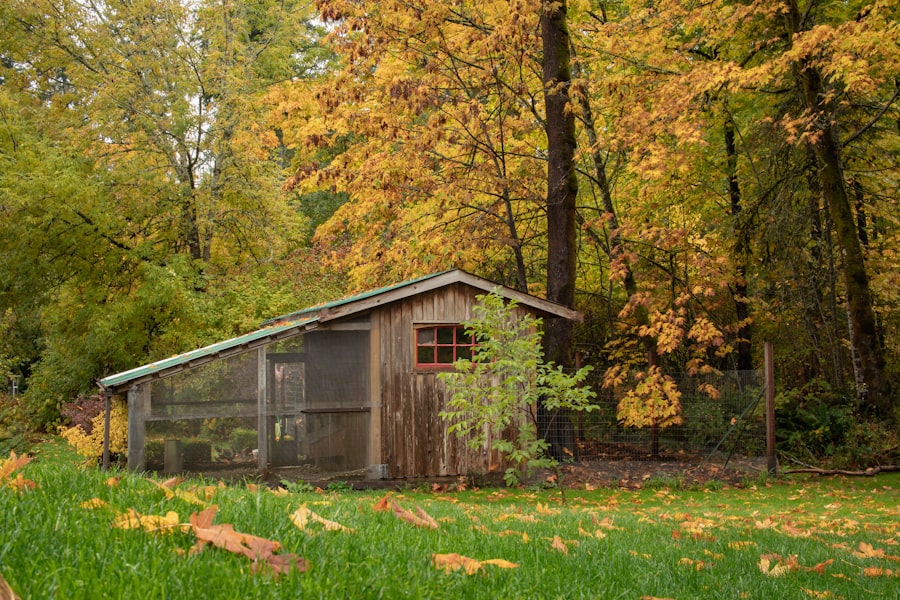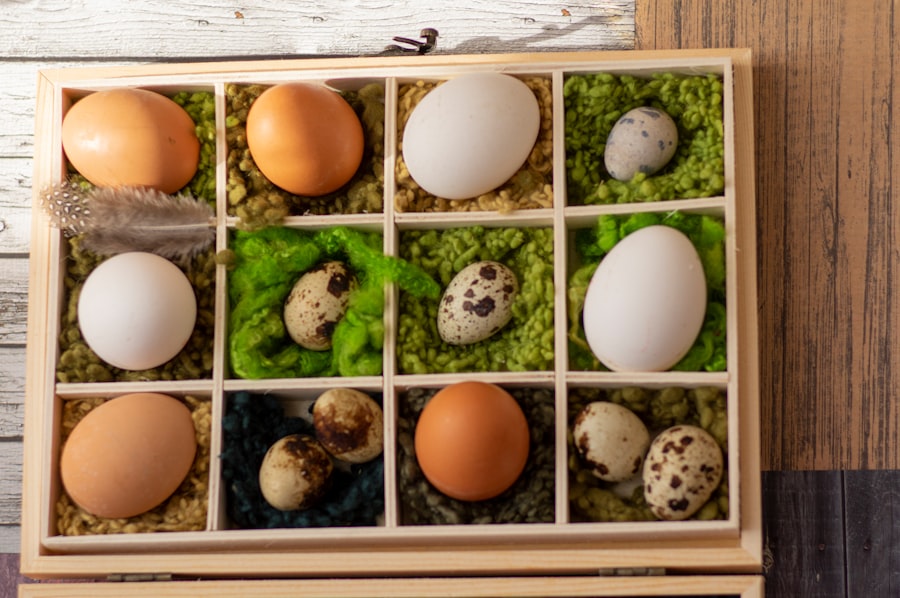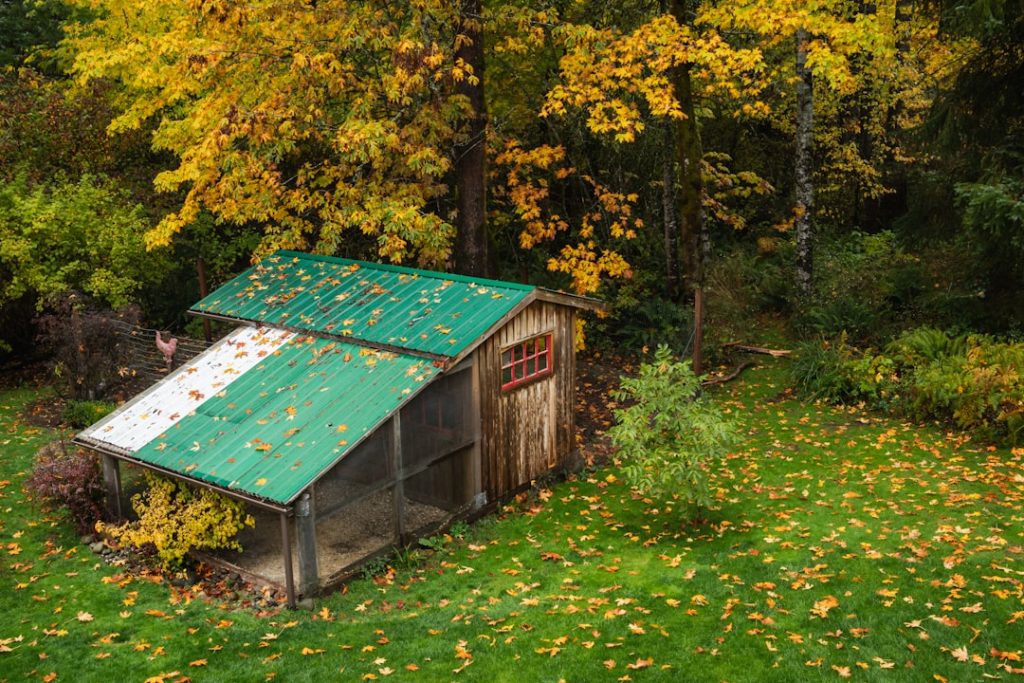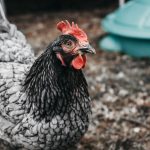Keeping chickens indoors is a crucial aspect of chicken husbandry, particularly for novice poultry keepers. This practice allows chickens to adapt to their new environment, establish routines, and form bonds with their caretakers. Indoor housing enables close monitoring of the birds’ health and behavior, ensuring proper nutrition, safety, and comfort.
It also protects chickens from predators, harsh weather conditions, and potential exposure to diseases prevalent in outdoor environments. The controlled indoor setting facilitates training and relationship-building between chickens and their owners, which can ease management when the birds are eventually allowed outdoors. Indoor housing prevents chickens from straying or becoming lost, providing a secure living space with constant access to food, water, and shelter.
This controlled environment allows owners to closely observe chicken behavior and promptly address any issues that may arise, such as aggression or illness. The practice of keeping chickens indoors is essential for maintaining their well-being and providing peace of mind for their caretakers.
Table of Contents
- 1 Determining the Right Time to Let Chickens Outside
- 2 Factors to Consider When Deciding How Long to Keep Chickens Inside
- 3 Understanding the Risks of Letting Chickens Outside Too Soon
- 4 Tips for Keeping Chickens Happy and Healthy While Inside
- 5 Monitoring the Weather and Its Impact on Keeping Chickens Inside
- 6 Gradually Introducing Chickens to the Outdoors
- 7 FAQs
- 7.1 What is the recommended age for keeping chickens inside?
- 7.2 How long should chickens be kept inside before being allowed outside?
- 7.3 What are the reasons for keeping chickens inside for a certain period of time?
- 7.4 What are the potential risks of keeping chickens inside for too long?
- 7.5 How can I ensure that my chickens are ready to be let outside?
Key Takeaways
- Keeping chickens inside is important for their safety and protection from predators
- The right time to let chickens outside is when they are fully feathered and the weather is mild
- Factors to consider when deciding how long to keep chickens inside include their age, health, and the weather conditions
- Letting chickens outside too soon can expose them to predators, diseases, and harsh weather conditions
- Tips for keeping chickens happy and healthy while inside include providing ample space, natural light, and enrichment activities
Determining the Right Time to Let Chickens Outside
Weather Conditions and Season
For example, it is best to wait until the spring or summer when the weather is mild and there is less risk of extreme temperatures or inclement weather.
Observing Chicken Behavior
Furthermore, it is important to observe the behavior of the chickens and ensure they are comfortable and confident before letting them outside. Owners should gradually introduce them to the outdoors by allowing them supervised access to a secure outdoor space.
A Safe and Stress-Free Transition
This will help the chickens become familiar with their surroundings and reduce the risk of stress or anxiety when transitioning from inside to outside. Overall, determining the right time to let chickens outside requires patience, observation, and consideration of various factors to ensure their safety and well-being.
Factors to Consider When Deciding How Long to Keep Chickens Inside

When deciding how long to keep chickens inside, there are several factors that owners should consider to ensure the well-being of their flock. One important factor is the age of the chickens, as younger chickens may require more time inside to develop their feathers and regulate their body temperature before being exposed to the outdoors. Additionally, the breed of the chickens and their individual health and behavior should be taken into account when deciding how long to keep them inside.
Furthermore, owners should consider the availability of a secure outdoor space for the chickens to roam and explore. It is important to provide a safe and predator-proof environment for the chickens to prevent any potential harm or stress when they are outside. Additionally, owners should consider their own schedule and availability to supervise the chickens when they are outside, ensuring they are safe and adjusting well to their new environment.
Overall, considering these factors will help owners make an informed decision about how long to keep their chickens inside before allowing them outside.
Understanding the Risks of Letting Chickens Outside Too Soon
Letting chickens outside too soon can pose several risks to their health and well-being. One of the main risks is exposure to predators, such as foxes, raccoons, or birds of prey, which can pose a threat to the safety of the chickens. Additionally, letting chickens outside too soon can expose them to extreme weather conditions, such as high temperatures or heavy rain, which can cause stress and discomfort for the chickens.
Furthermore, allowing chickens outside too soon can increase the risk of disease transmission from wild birds or other animals that may carry pathogens harmful to chickens. This can lead to illness and potential outbreaks within the flock, posing a threat to their overall health. Additionally, letting chickens outside too soon can cause stress and anxiety for the chickens, especially if they are not fully acclimated to their new environment.
Overall, understanding the risks of letting chickens outside too soon is crucial for ensuring their safety and well-being.
Tips for Keeping Chickens Happy and Healthy While Inside
Keeping chickens happy and healthy while inside requires providing them with a comfortable living space and meeting their basic needs. One tip is to ensure that the indoor coop is spacious enough for the number of chickens being housed, allowing them room to move around and perch comfortably. Additionally, providing ample bedding, such as straw or wood shavings, will help keep the coop clean and provide a comfortable environment for the chickens.
Furthermore, it is important to provide a balanced diet for the chickens, including a mix of commercial feed, fresh water, and occasional treats such as fruits and vegetables. This will ensure that the chickens receive essential nutrients and maintain good health while inside. Additionally, providing enrichment activities such as perches, toys, or dust baths will help keep the chickens mentally stimulated and prevent boredom while inside.
Overall, following these tips will help keep chickens happy and healthy while inside.
Monitoring the Weather and Its Impact on Keeping Chickens Inside

Temperature Regulation
Extreme temperatures, such as heatwaves or cold snaps, can pose a risk to the health of the chickens if they are not properly regulated inside their coop. It is important to provide adequate ventilation in the coop during hot weather to prevent heat stress and ensure good air quality for the chickens.
Insulation and Heating
During cold weather, it is important to provide insulation and heating in the coop to keep the chickens warm and comfortable.
Weather Events and Safety
Owners should also be mindful of potential weather events such as storms or heavy rain that may impact the safety of the coop and its inhabitants. Overall, monitoring the weather and its impact on keeping chickens inside is essential for ensuring their comfort and well-being.
Gradually Introducing Chickens to the Outdoors
Gradually introducing chickens to the outdoors is an important step in ensuring their safety and comfort when transitioning from inside to outside. Owners should start by allowing supervised access to a secure outdoor space for short periods of time, gradually increasing the duration as the chickens become more familiar with their surroundings. This will help reduce stress and anxiety for the chickens as they adjust to their new environment.
Additionally, providing enrichment activities such as perches, dust baths, or access to fresh grass will help keep the chickens stimulated and engaged while outside. Owners should also be mindful of potential predators or hazards in the outdoor environment and take steps to mitigate any risks before allowing the chickens outside unsupervised. Overall, gradually introducing chickens to the outdoors will help ensure a smooth transition and a positive experience for both the chickens and their owners.
If you’re considering keeping chickens inside, you may also be interested in learning about how to convert a shed into a chicken coop. This article from Poultry Wizard provides helpful tips and guidance on how to repurpose an existing structure to create a comfortable and functional living space for your feathered friends. Check it out here.
FAQs
What is the recommended age for keeping chickens inside?
The recommended age for keeping chickens inside is typically 6-8 weeks. At this age, they are fully feathered and better equipped to regulate their body temperature.
How long should chickens be kept inside before being allowed outside?
Chickens should be kept inside for about 6-8 weeks before being allowed outside. This allows them to fully develop their feathers and adjust to the outdoor environment.
What are the reasons for keeping chickens inside for a certain period of time?
Keeping chickens inside for a certain period of time allows them to grow and develop properly, build up their immune systems, and become acclimated to their surroundings before being exposed to potential predators and harsh weather conditions.
What are the potential risks of keeping chickens inside for too long?
Keeping chickens inside for too long can lead to stress, boredom, and health issues such as feather pecking and cannibalism. It is important to provide chickens with access to the outdoors once they are ready.
How can I ensure that my chickens are ready to be let outside?
You can ensure that your chickens are ready to be let outside by observing their behavior and ensuring that they are fully feathered. Additionally, providing a secure outdoor space for them to explore and roam will help ease the transition.
Meet Walter, the feathered-friend fanatic of Florida! Nestled in the sunshine state, Walter struts through life with his feathered companions, clucking his way to happiness. With a coop that’s fancier than a five-star hotel, he’s the Don Juan of the chicken world. When he’s not teaching his hens to do the cha-cha, you’ll find him in a heated debate with his prized rooster, Sir Clucks-a-Lot. Walter’s poultry passion is no yolk; he’s the sunny-side-up guy you never knew you needed in your flock of friends!







